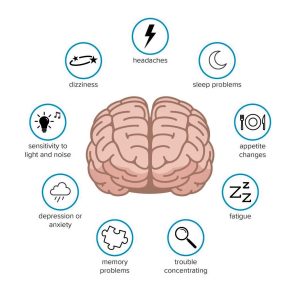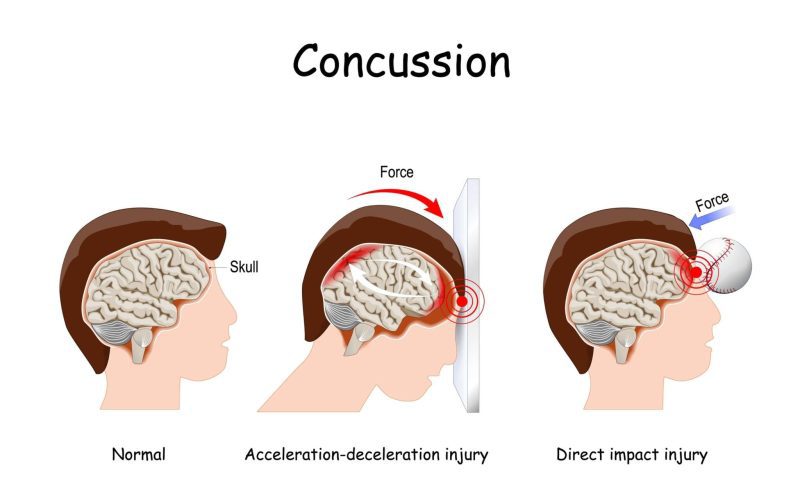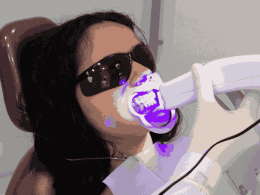Understanding Concussions: A Silent Injury
Concussions, often dubbed as “invisible injuries,” are a common occurrence in various situations, ranging from sports activities to everyday accidents. Despite their prevalence, concussions can be elusive to detect, making it crucial to understand the Concussion Symptoms associated with this type of head injury. Explore More About (Bad Sleep Causes Blindness)
What is a Concussion?
A concussion is a mild traumatic brain injury that occurs when a sudden blow or jolt to the head causes the brain to shake inside the skull. This shaking can result in temporary disruption of normal brain function, leading to a range of symptoms.
Concussion Symptoms
Physical Symptoms
- Headache: One of the most common Concussion Symptoms is a persistent headache that may worsen over time.
- Nausea and Vomiting: Individuals with a concussion may experience feelings of nausea or may vomit following the injury.
- Dizziness and Balance Issues: A sense of dizziness or difficulty maintaining balance is often reported by those who have suffered a concussion.
- Sensitivity to Light and Noise: Sensory sensitivity, particularly to light and noise, is a hallmark symptom of a concussion.
Concussion Symptoms
- Confusion: A concussion can cause cognitive disturbances, leading to feelings of confusion or disorientation.
- Memory Problems: Short-term memory loss or difficulty concentrating are common Concussion Symptoms.
- Slurred Speech: Speech difficulties, such as slurring words, may occur following a head injury.
Emotional Symptoms
- Mood Swings: Concussions can affect mood stability, causing individuals to experience sudden mood swings or emotional outbursts.
- Irritability: Feelings of irritability or agitation are frequently observed in individuals recovering from a concussion.
- Depression and Anxiety: In some cases, concussions can trigger symptoms of depression and anxiety.

Seeking Medical Attention
If you suspect that you or someone else has sustained a concussion, it is essential to seek medical attention promptly. While many concussions resolve on their own with rest and symptom management, complications can arise if left untreated. A healthcare professional can conduct a thorough evaluation and provide guidance on the appropriate course of action.
Recovery and Management
Rest and Relaxation
Rest is crucial for the recovery process following a concussion. It’s essential to allow the brain sufficient time to heal by avoiding physically and mentally strenuous activities.
Gradual Return to Activities
As symptoms improve, individuals may gradually reintroduce activities into their daily routine. However, it’s important to proceed with caution and listen to the body’s signals to avoid exacerbating symptoms.
Monitoring Symptoms
Monitoring symptoms closely is essential during the recovery period. If symptoms persist or worsen over time, it may indicate the need for further medical evaluation.
Preventing Concussions
While it’s not always possible to prevent concussions entirely, there are steps individuals can take to minimize their risk:
- Wear Protective Gear: When engaging in activities that carry a risk of head injury, such as sports or construction work, wearing appropriate protective gear can help mitigate the risk of concussion.
- Practice Safe Behaviors: Avoiding risky behaviors, such as reckless driving or engaging in physical altercations, can reduce the likelihood of sustaining a head injury.
- Create Safe Environments: Take steps to create safe environments, both at home and in public spaces, to minimize the risk of falls and accidents.

Concussion vs. Other Head Injuries
| Symptoms | Concussion | Other Head Injuries |
|---|---|---|
| Headache | Persistent headache | Variable intensity |
| Nausea and Vomiting | Common | Less common |
| Dizziness and Balance | Issues | May or may not be present |
| Sensitivity to Light | and Noise | Variable |
| Confusion | Common | Variable |
| Memory Problems | Short-term memory loss | Variable |
| Slurred Speech | Possible | Possible |
| Mood Swings | Frequent | Variable |
| Irritability | Common | Variable |
| Depression and Anxiety | Possible | Possible |
Conclusion
Concussions are a prevalent form of head injury that can have significant implications for affected individuals. By understanding the signs and symptoms associated with concussions and taking proactive measures to prevent head injuries, individuals can minimize their risk and promote overall well-being.
Remember, if you suspect that you or someone else has sustained a concussion, seek medical attention promptly to ensure proper evaluation and management.












